

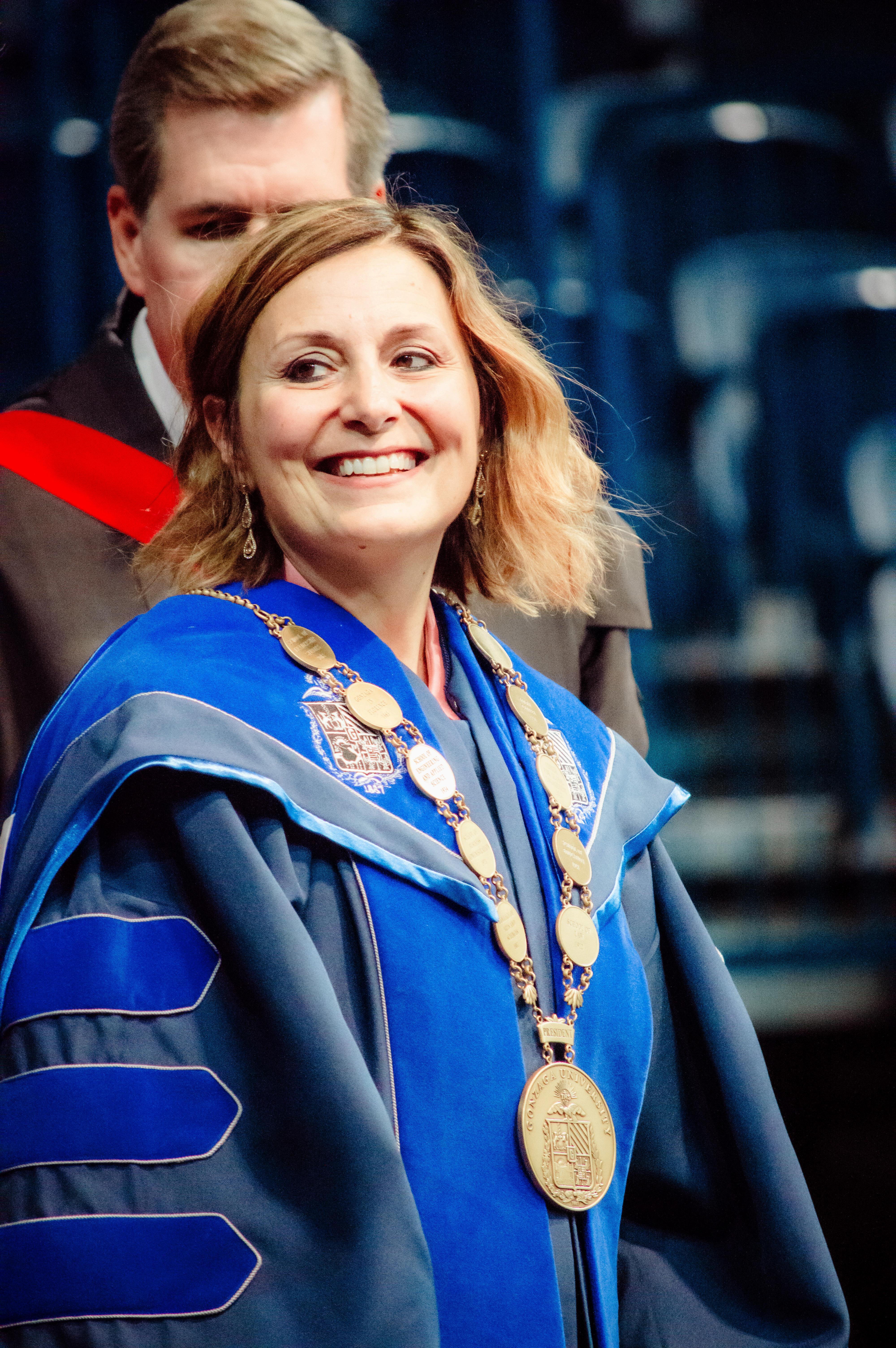




Dear Gonzaga Community,

Robin Kelley, Ph.D.
Welcome to the October 2024 issue of Diversity Digest. This month, we honor observances that hold deep meaning for our community, such as Hispanic Heritage Month, World Mental Health Awareness Month, and Breast Cancer Awareness Month. Each provides an opportunity to reflect on the richness of human experience and the shared responsibility we have to care for one another.
At Gonzaga, the Office of Inclusive Excellence celebrates the fullness of humanity, our differences, our stories, and our collective striving toward a more just and compassionate world. Grounded in our Jesuit values, we are committed to fostering inclusion, belonging, and dialogue that bridge divides and deepen understanding. As we engage in the work together, our diverse identities and perspectives form a living tapestry that animates the mission of this University.
I invite you to engage with the stories, reflections, information, and events featured in this issue. May they inspire you to build bridges across differences, to listen deeply, and to grow intellectually and personally. We can grow in solidarity with each other. Thank you for your continued partnership in advancing our shared commitment to inclusive excellence.
Respectfully,

Robin Kelley, Ph D

Every October, communities across the globe come together to observe Mental Health Month. A single day, “World Mental Health Day,” established on October 10, 1992, has grown into a worldwide movement dedicated to raising awareness, breaking stigma, and building pathways toward greater access and understanding throughout the month. The theme of mental health is universal yet the experiences, barriers, and opportunities for support are shaped uniquely by culture, identity, and community.

Mental health challenges affect millions of people every year, often in ways that remain unseen. The World Population Review states, “The Global Health Data Exchange estimates that 251-310 million people worldwide suffer from depression” (2).
Depression is just one mental health disorder that many in the U.S. and worldwide suffer from. While anxiety, depression, trauma, and burnout do not discriminate, they reach across age, background, and circumstance. At Gonzaga, the Jesuit value of cura personalis—care for the whole person, calls for taking seriously not only physical and intellectual growth but also emotional and spiritual well-being. This value challenges us to ask: How can we show up for ourselves and for one another in ways that affirm dignity, belonging, and compassion?

compounded by structural inequalities, leaving individuals feeling isolated or unseen. World Mental Health Month provides us with an opportunity to dismantle these stigmas by normalizing conversations about mental health.
Mental health care is not something pursued alone; rather, it is sustained through networks of care, such as friends, family, mentors, colleagues, and community members. At Gonzaga, creating a culture of belonging means cultivating environments where individuals feel safe to seek help and are met with empathy and support. This month, we encourage you to pause and reflect: How do you check in with yourself each day? What practices bring you balance? How can you extend compassion to others who may be struggling? See these resources for more information on Gonzaga’s Health & Counseling Services.
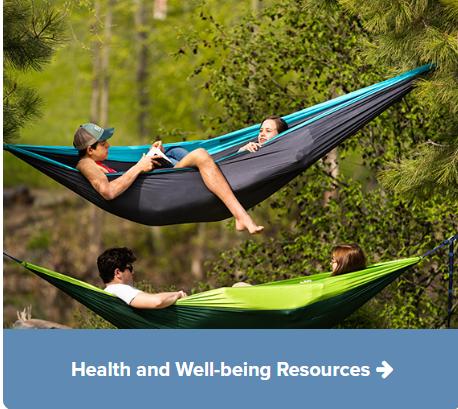
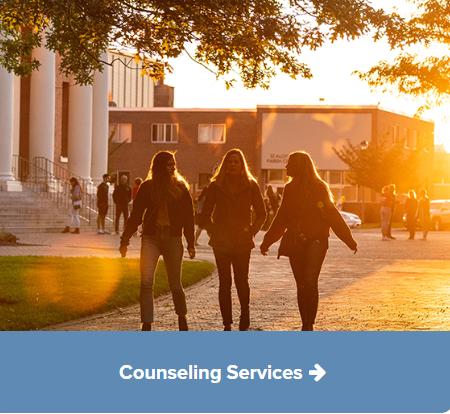


Below are resources available to our Gonzaga community and beyond: Gonzaga University Health & Counseling Services: on-campus mental health support and crisis intervention.
Office of Inclusive Excellence: opportunities for dialogue, connection, and advocacy around belo i d ll b i
National Alliance on advocacy at nami.org
National Hotline for Line – fr

A Call to Ac World Ment a necessity. It asks us to As a university communit health is prioritized, stigm Contact Us | National Al
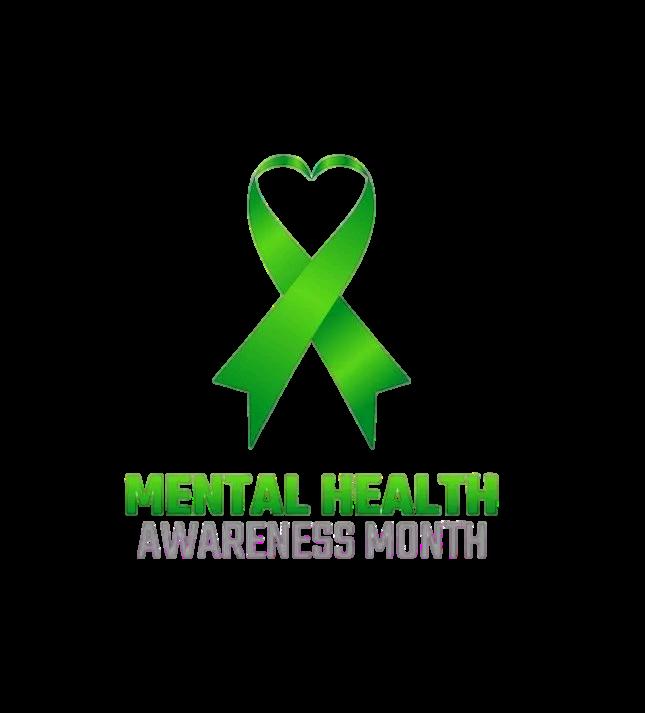

Each year, from September 15 to October 15, we celebrate Hispanic Heritage Month, a time to celebrate the histories, cultures, and contributions of Hispanic and Latine communities across the United States and beyond. This month-long observance invites us not only to recognize the legacies of the past but also to reflect on the ways these communities continue to shape our present and future.
At Gonzaga, we know that heritage is more than history as it is lived every day through language, art, food, family traditions, and resilience.

Hispanic Heritage Month began in 1968 as a week of recognition and was later expanded to a full month in 1988, intentionally starting on September 15 to align with the Independence Days of several Latin American countries. As we wrap up this year’s celebration, we encourage our community to carry the spirit of Hispanic Heritage Month forward.

Every year on October 19th, communities across the nation observe Breast Cancer Awareness Day as part of the broader Breast Cancer Awareness Month. This day is dedicated to raising awareness about breast cancer, supporting those affected, and highlighting the importance of early detection, treatment, and research. The day and month observances were officially established in 1985.
Breast cancer remains the most common cancer diagnosed among women worldwide, though it also affects men. According to the American Cancer Society, about one in eight women in the United States will develop invasive breast cancer during their lifetime. While these statistics can feel overwhelming, they underscore the importance of awareness, education, and access to resources.
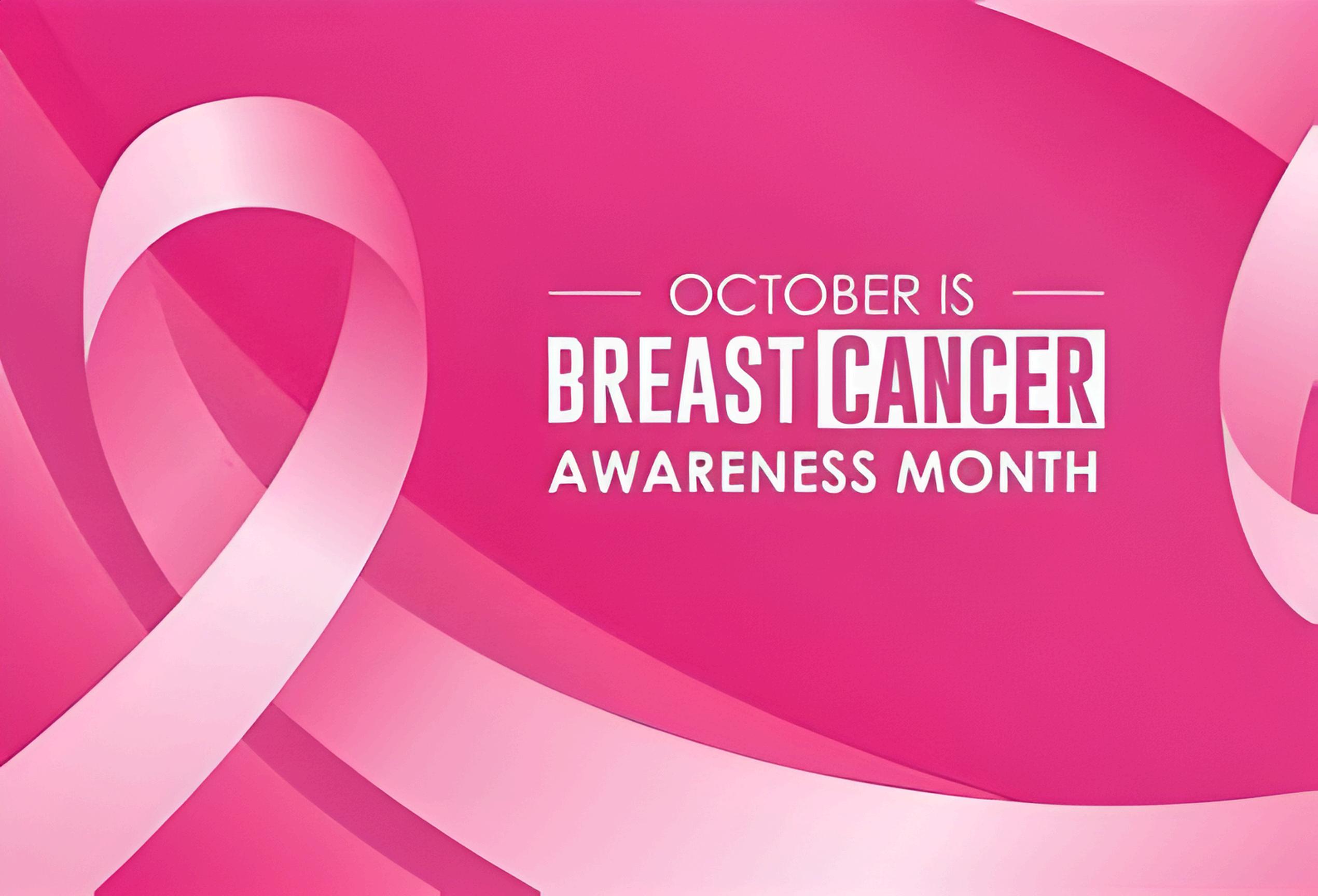
Communities of color, rural populations, and individuals with limited healthcare access often face disparities in diagnosis and treatment, which highlights the ongoing need for equity in healthcare systems.

In recognition of Breast Cancer Awareness Day, it is important to carry forward a commitment to education and action. This includes scheduling regular checkups, learning about risk factors, supporting organizations dedicated to research, and offering encouragement to those navigating their own breast cancer journey.
For more resources, see below to visit the National Breast Cancer Foundation and Susan G. Komen.
Breast Cancer Awareness Month - National Breast Cancer Foundation Komen Educational Resources
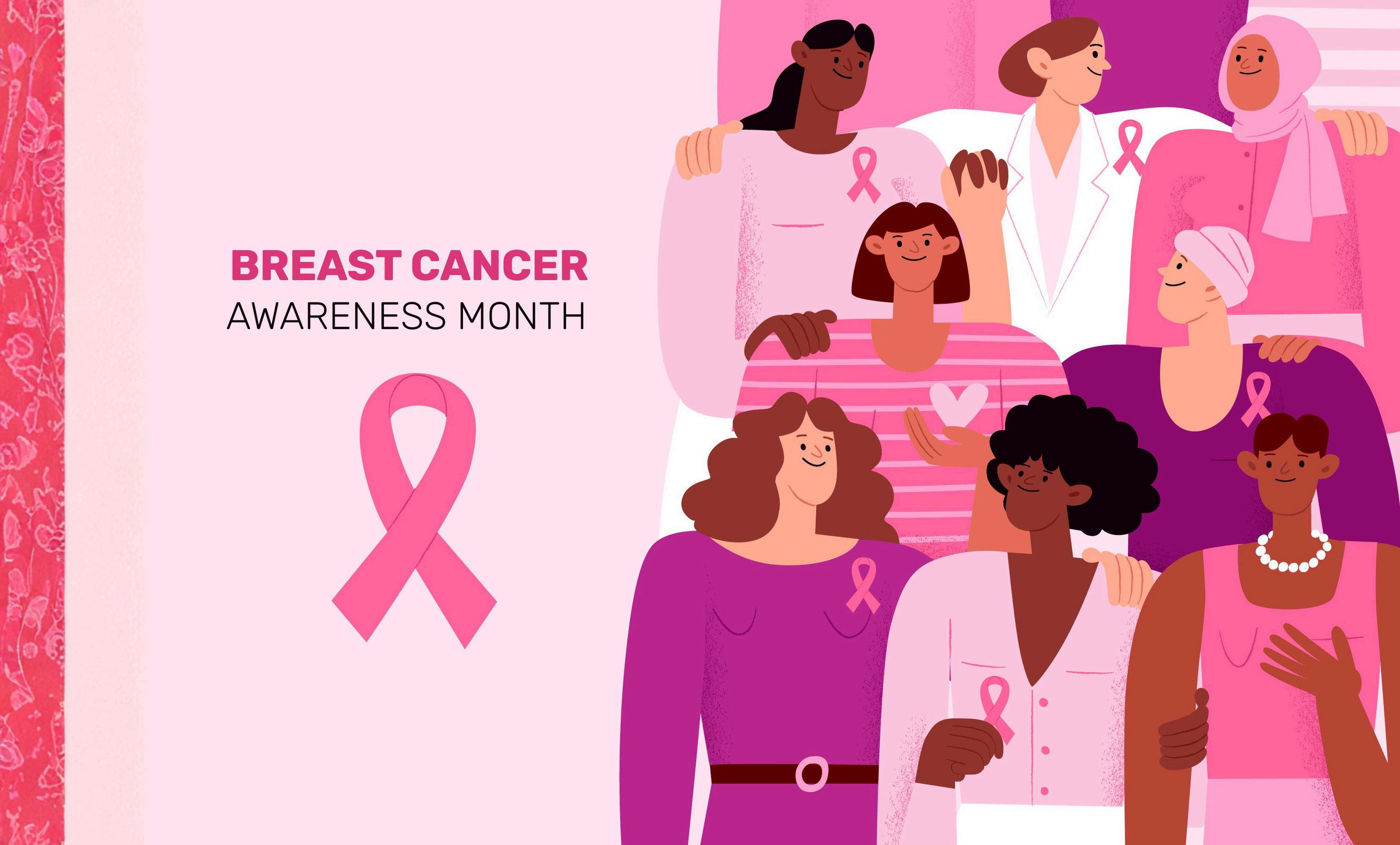

National LGBTQ+ History Month, observed each October, recognizes the contributions and resilience of lesbian, gay, bisexual, transgender, and queer communities. Established in 1994 by educator Rodney Wilson, the month serves as an opportunity to highlight key figures, pivotal movements, and the ongoing pursuit of equity.


October was chosen in connection with National Coming Out Day on October 11 and also commemorates landmark moments such as the first and second marches on Washington for LGBTQ+ rights in 1979 and 1987. These touchstones emphasize the importance of visibility, collective action, and continued advocacy. Acknowledging this history also means recognizing the challenges LGBTQ+ communities continue to face. Discrimination, health disparities, and barriers to full inclusion persist, underscoring the importance of education, advocacy, and support

Resources at Gonzaga University:
Lincoln LGBTQ+ Resource Center (Hemmingson 213): Offers support, programming, and community engagement; a central resource center.
Unity House Multicultural Education Center: Provides inclusive spaces and educational opportunities.
Counseling and Wellness Services: Supports students navigating i

Resources Beyond Gonzaga University:
GLAAD (glaad.org): A non-profit organization for LGBTQ+ communities advocacy.
The Trevor Project (thetrevorproject.org): Provides crisis intervention and suicide prevention resources for LGBTQ+ youth.
Human Rights Campaign (hrc.org): Advocates for policy change and equality nationwide.

Religion holds significant influence in many aspects of life and contributes to shared norms, values, and behaviors. Religion intersects with domestic violence in a complex way. While religion can offer a path of healing and moral guidance for domestic violence survivors, it has also been used to perpetuate cycles of abuse and patriarchal norms. It is important to understand the dual capacity of religion regarding domestic violence.
Religion is often used to reinforce patriarchal norms and structures, which have contributed to the prevalence of domestic violence. There are a lot of scriptures that paint the man as the head of the household, with the woman being the caretaker and submissive partner in the relationship. These scriptures have been taken out of context at times to promote obedience of the wives as well as male dominance, which enforces a power structure that is often in play in cases of domestic violence.

Many religions also discourage divorce, even in cases of abuse, as they view divorce as immoral. This makes it easy for perpetrators of domestic violence to trap their partner in marriage, often with women being the victim. This may be because they feel morally obligated to stay in the marriage or are afraid of the repercussions that they may encounter when trying to separate from their partner.

Lastly, shame and stigma within religious communities can further silence victims. Admitting abuse can be viewed as disrupting the harmony of a religious community or bringing dishonor to one’s family. In these ways, religion, when misused, can be seen as a way to protect perpetrators of domestic violence and as a tool to silence victims.
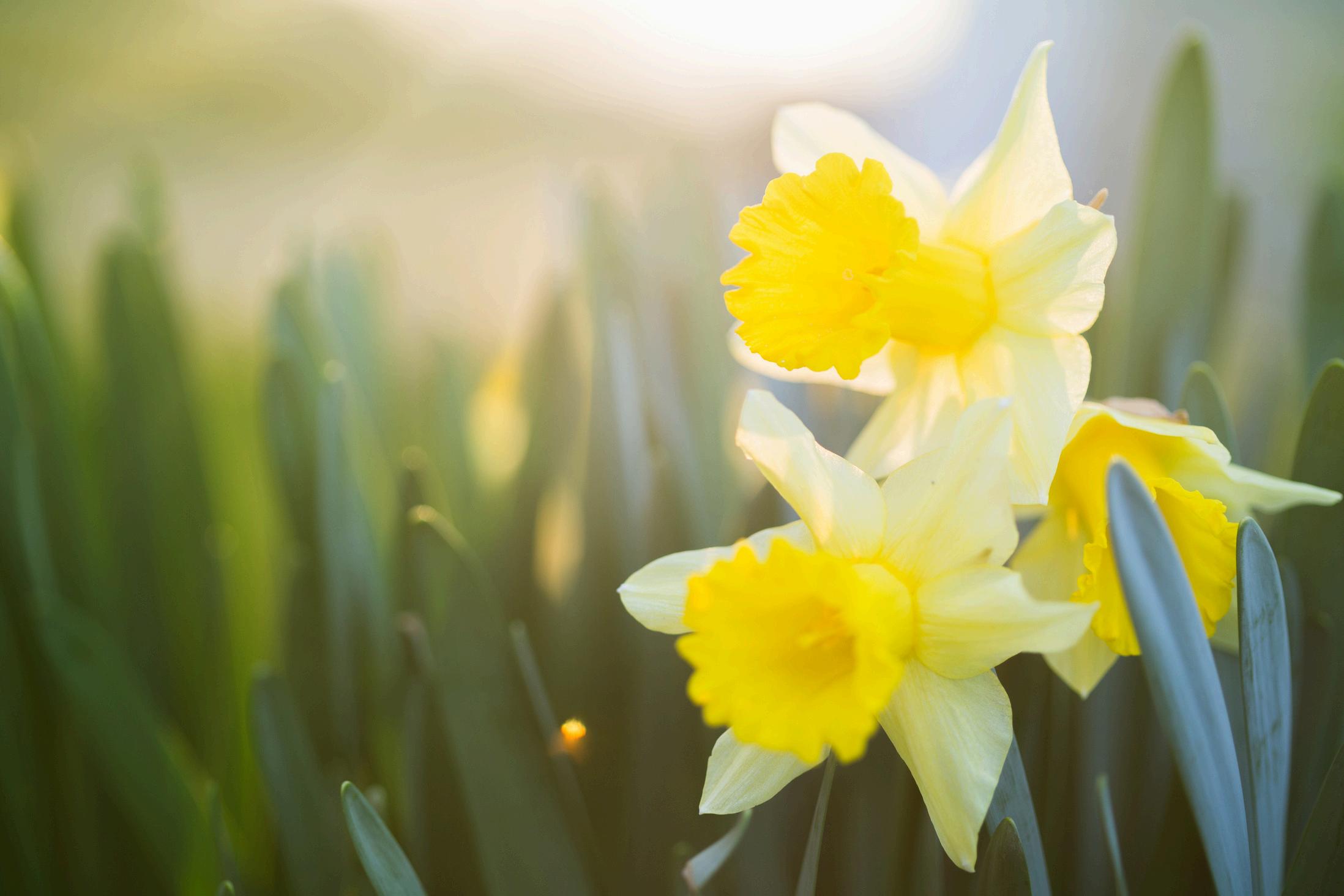
On the other hand, when applied correctly, religion can be an important path to healing, especially from a Jesuit lens. The Jesuit tradition emphasizes social justice, human dignity, and accompaniment of the marginalized. This offers support for victims of domestic violence and recognizes the experience of survivors. Jesuits “find God in all things”, which includes suffering and healing. By recognizing the presence of God in a path for healing, survivors may find this as a powerful tool to reclaim their autonomy and find justice. The Ignatian practice of examen, which is a
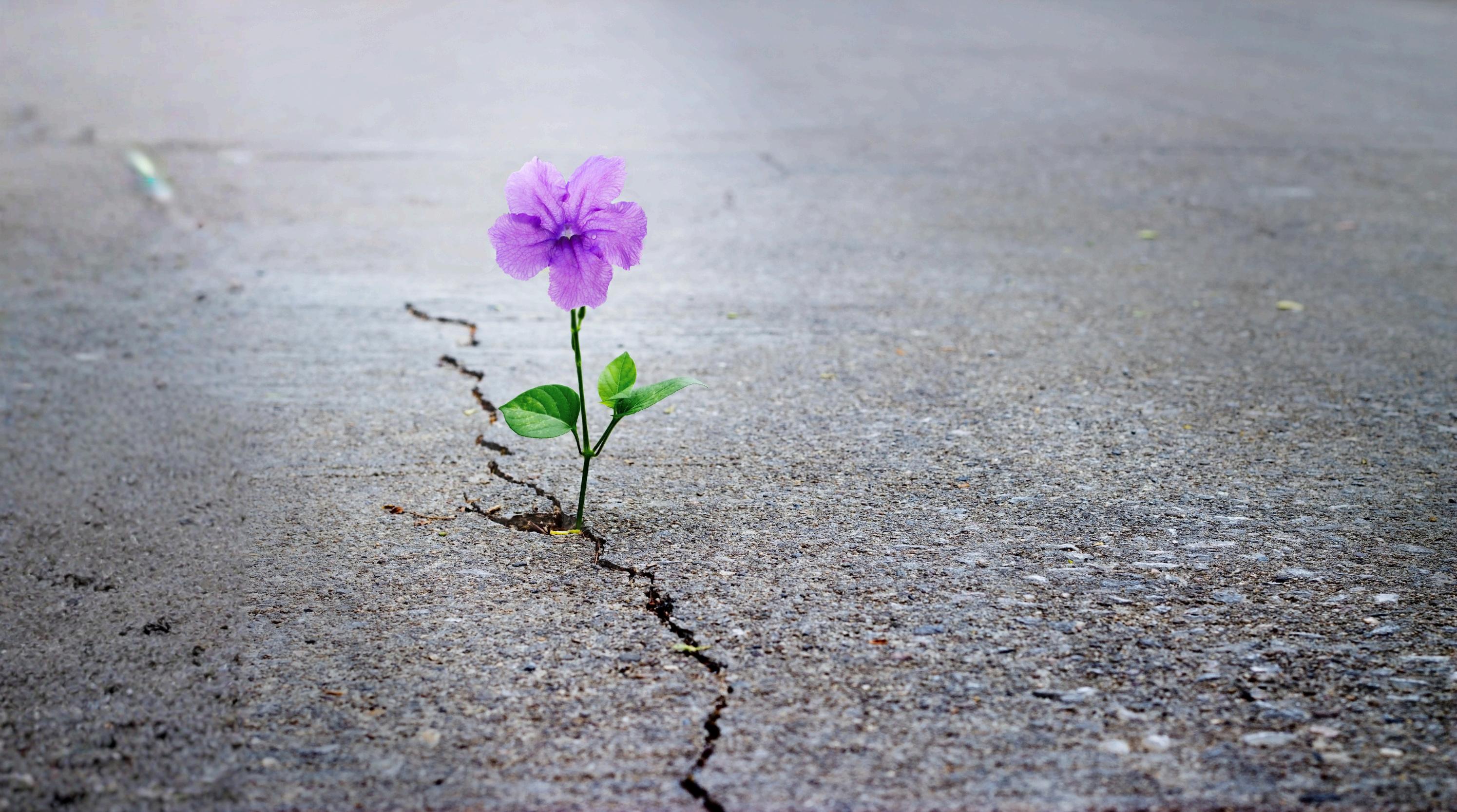

Jesuit institutions also promote social advocacy, which can play an important role in raising awareness about domestic violence. Emphasizing social justice and cura personalis, Jesuit ministries can help offer holistic support that respects the needs and unique path for healing of survivors. In addition, they also recognize the importance of challenging unjust structures that enable abuse. Jesuits are committed to helping individual survivors while also building towards dignity and justice for all.
To conclude, the relationship between religion and domestic violence is very complex and serves different purposes. It is important to recognize and break down these structures to recognize how they may have contributed to the abuse and silencing of victims. However, one must also acknowledge the powerful tools that religion has for healing and advocacy, especially through a Jesuit lens of social justice and cura personalis.
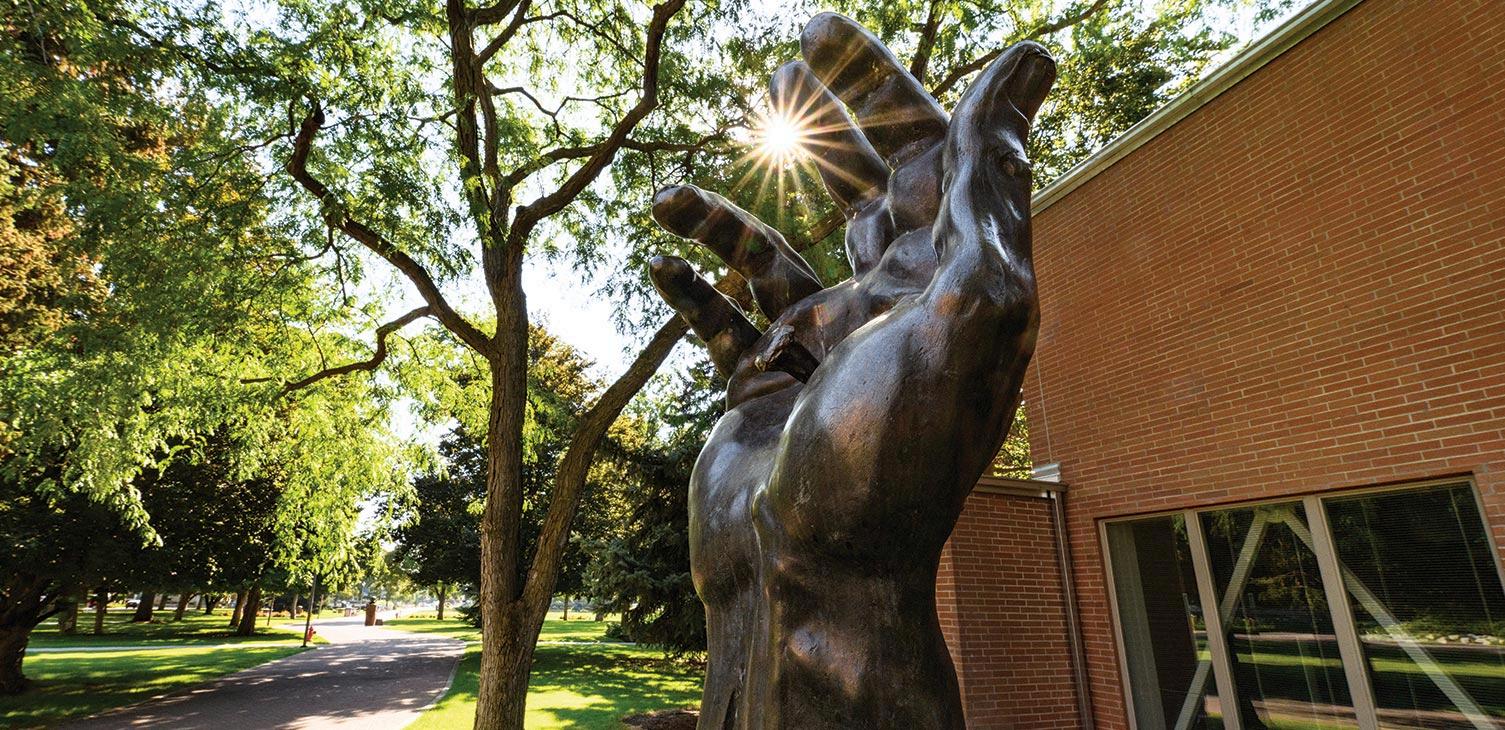

It can be confusing to understand and navigate Gonzaga’s policies and procedures as they relate to Title IX, Harassment and Non-Discrimination, and bias incidents Below, we have answered some frequently asked questions that have come up in the training we conduct across campus.
During a Title IX investigation, both parties, the complainant and the respondent, are given equal access to relevant information, including statements, evidence, and reports. This is intended to ensure a fair and transparent process, but it also means that the other party will likely become aware of what you’ve shared. Additionally, “need to know” individuals (individuals who can assist in the resolution of a complaint) will be given access to information about the investigation. This includes the Title IX Coordinator, investigators, and those who make decisions about the outcome of a case.
The University is obligated to protect the identities of parties involved and information as much as possible. The University must also provide due process to all parties involved.
As a complainant, am I required to participate in a formal resolution process?
No. If you are the complainant in a reported matter, you decide whether or not to pursue a formal Title IX process. Upon receiving a report of alleged prohibited conduct, the Title IX Coordinator will request a meeting with you to explain your options and connect you to resources and support services. Once you have been informed of your process options, the Title IX Coordinator will explain how to complete a Formal Title IX Complaint if you wish to pursue a formal resolution process.

To the extent possible, information reported to the Title IX Coordinator or another University employee will be shared only with need-to-know individuals responsible for handling the University’s response to the incident. The University will protect the privacy of individuals involved except as otherwise required by law or University policy. A report may result in the gathering of extremely sensitive information about you and other individuals in the campus community. While such information is considered confidential, University policy regarding access to public records and disclosure of personal information may require disclosure of certain information concerning a reported incident. In such cases, efforts will be made to redact the records, as appropriate, in order to protect your identity and privacy and the privacy of other individuals involved.
Physicians, psychotherapists, professional, licensed counselors, and clergy who work or volunteer on or off campus acting solely in those roles or capacity, in the provision of medical or mental health treatment or counseling (including those who work or volunteer in those offices) may not report any information about an incident of sexual misconduct to anyone else at the University, including the Title IX Coordinator, without your consent. You can seek assistance and support from physicians, psychotherapists, professionals, licensed counselors, and clergy without triggering a university investigation that could reveal your identity or the fact of your disclosure.

How do I report an incident of sexual misconduct, discrimination, or harassment to the University?
From the links at the bottom of any GU webpage, click the “Title IX” link and once directed to the “Title IX” webpage, click on the “Report an Incident” tile under the “REPORT = SUPPORT” header. On the “Report an Incident” page, click the “Report Online” button which will route you to the online reporting form. You can also scan the QR code below to be routed directly to the form.

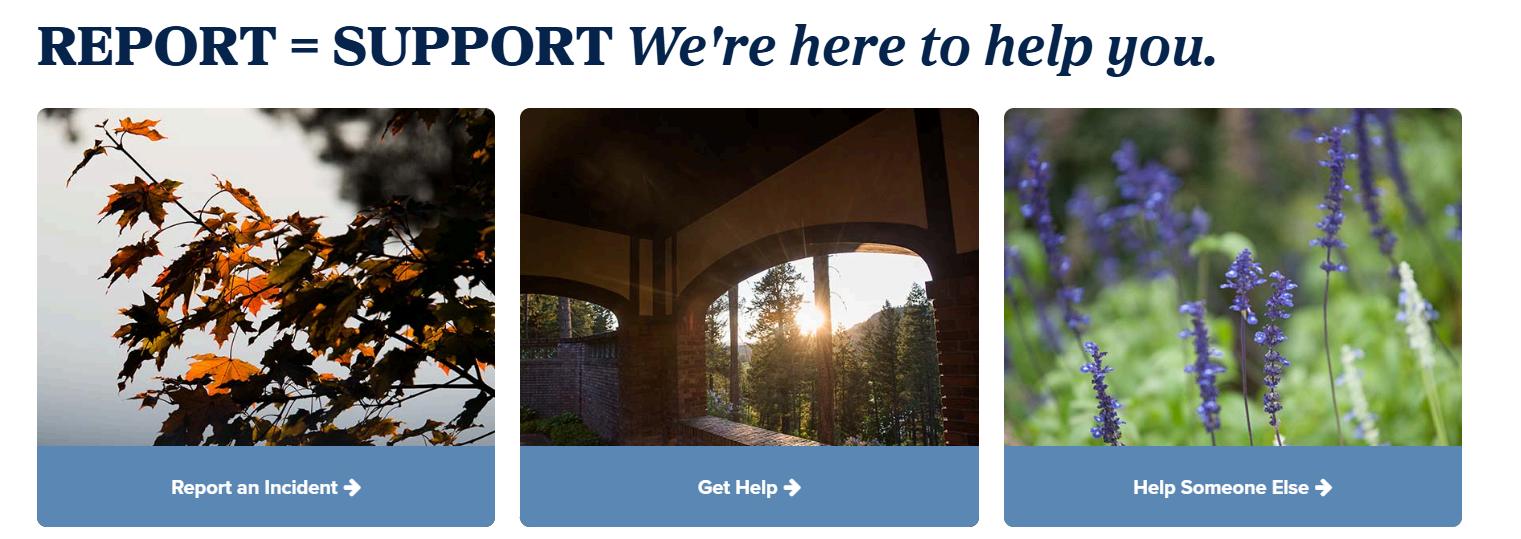
Go to title IX Website, scroll down and click “Report an incident” or scan/click the QR Code
If you would like to ask us a question about the Title IX or Harassment and NonDiscrimination policies or grievance processes, scan/click the following QR code:

Link to Question Submission

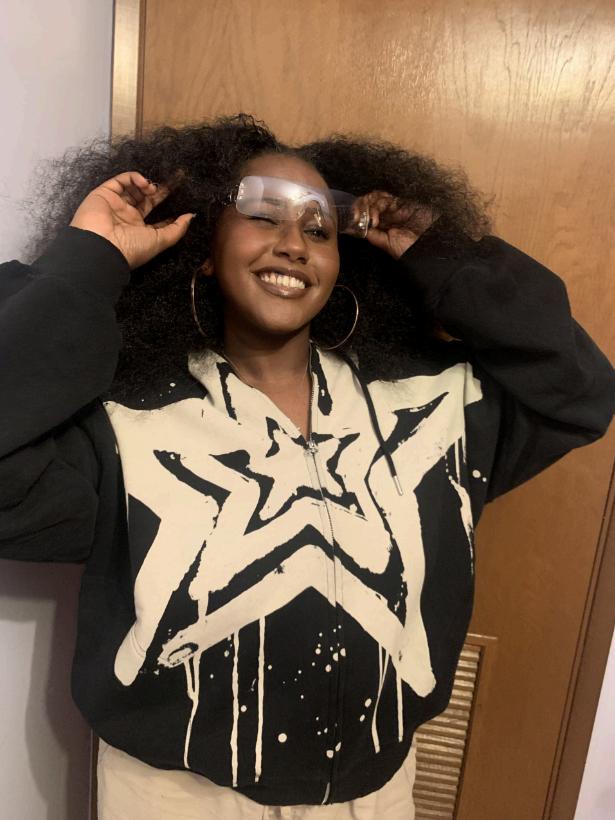
Originally from Seattle, Washington, Sophomore Yene Bereket is a junior pursuing a major in Business Administration with a concentration in marketing, along with minors in Psychology and Hogan Entrepreneurship. When it came to choosing a college, Yene made her decision with intention. “Financials are always going to be a factor,” she says candidly. “But I wanted to be far enough to figure things out on my own, and still close enough to get home for a four-day weekend.”
During the weekends, she spends her time cleaning her space, resetting her mindset, and l i “H


A’s spicy chicken deluxe meal, a key lime frosted lemonade, and a large mac and cheese. For drinks, root beer wins “because it’s sugar,” she emphasized with a laugh. Her favorite music artists are a tie between Daniel Caesar and Bob Marley, though Michael Jackson will always be a classic favorite.
Beyond her academics and personal passions, she is involved at GU as a Resident Assistant (RA) on Kennedy and as the Dinner and Culinary Chair Black Student Union (BSU). Last yea organized BSU’s annual event, Soul T “You could probably see in my Docs have like 20 pages worth of notes,” s says proudly. Yene is also involved w other cultural clubs, specifically, the American Union (AAU) and Hawai'i P Islanders Club (HPIC). She says, "I alw think it's important to learn about dif cultures on campus.”
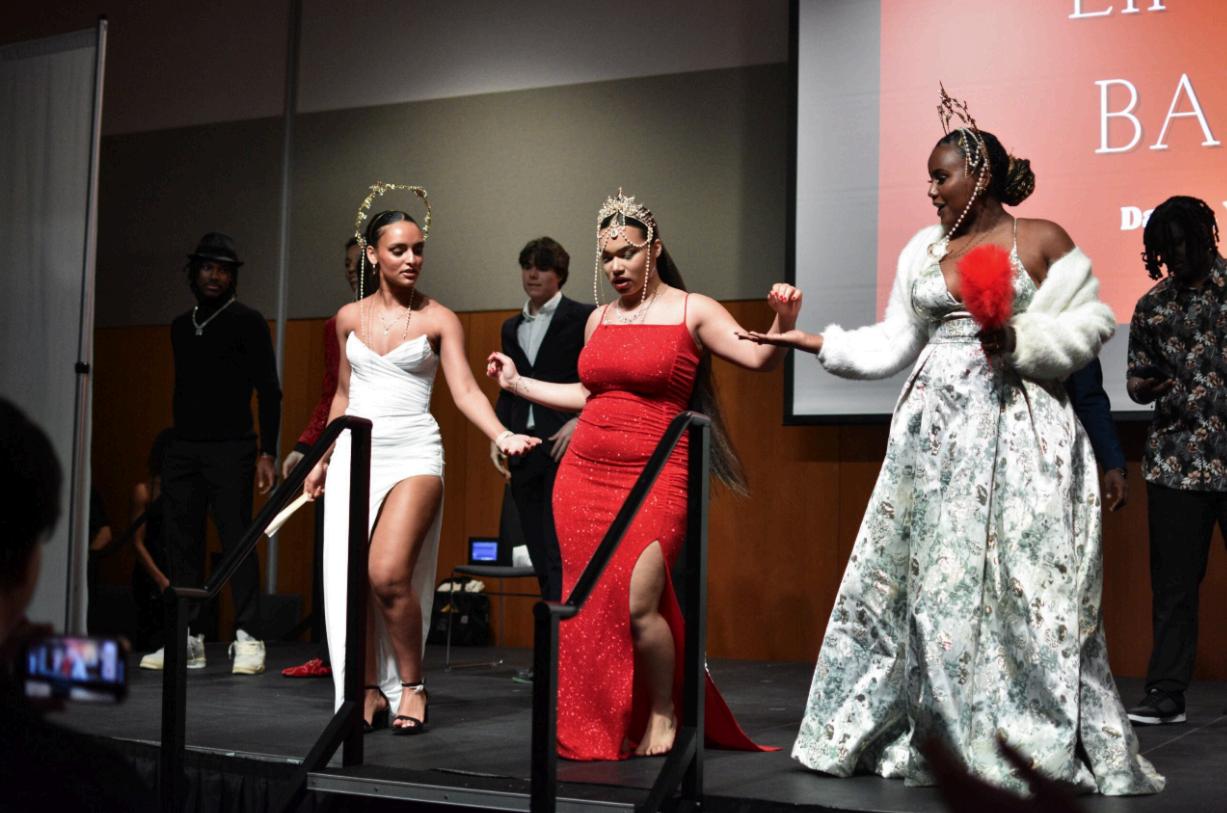
Yene’s advice to underclassmen is to "Take your time and do everything straight off the bat, like you're not going to know what it's like unless you actually go there and experience it for yourself... But then, when I came here, I had the luck of finding good friends that were willing to go out and explore with me " She also speaks on that "All these cultural clubs, all these academic clubs, all these just, there's just a bunch of different options for you." In all, she says "don't be afraid to try it out Just attend a meeting. That's the first step."
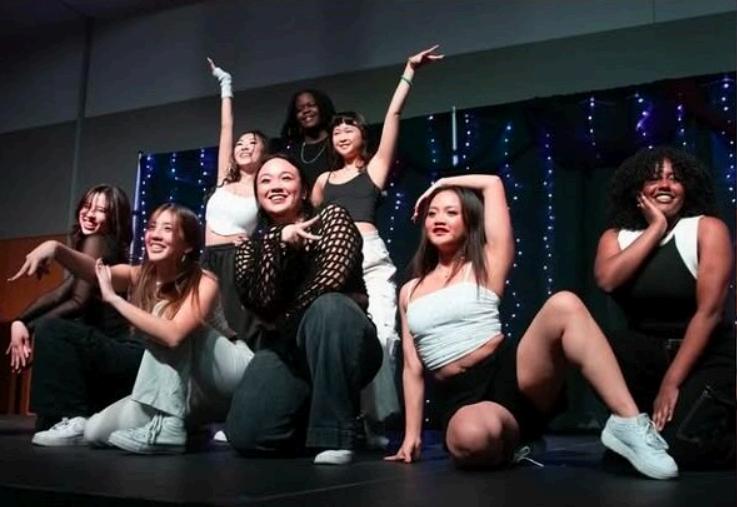

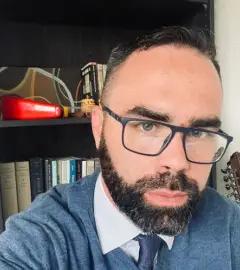
As Hispanic Heritage Month comes to a close on October 15th, it is important to celebrate the faculty whose teaching, research, and community engagement embody the themes of history, culture, and contribution. Dr. Abraham’s work is deeply tied to his Puerto Rican heritage and to the experiences that first sparked his interest in social movements, peacebuilding, and the power of collective action. Dr. Abraham recalls that his interest in social justice began when he moved to Puerto Rico at age 12 and witnessed a grassroots struggle against the U.S. Navy’s use of Vieques as a bombing range.
“Participating in peaceful civil disobedience there, seeing ordinary people occupy restricted zones, fill jails, and ultimately win the Navy’s withdrawal revealed how powerful organized, nonviolent collective action can be,” he explains. That moment, he notes, sparked a lifelong curiosity about what makes social movements effective and how contentious politics can reshape power.
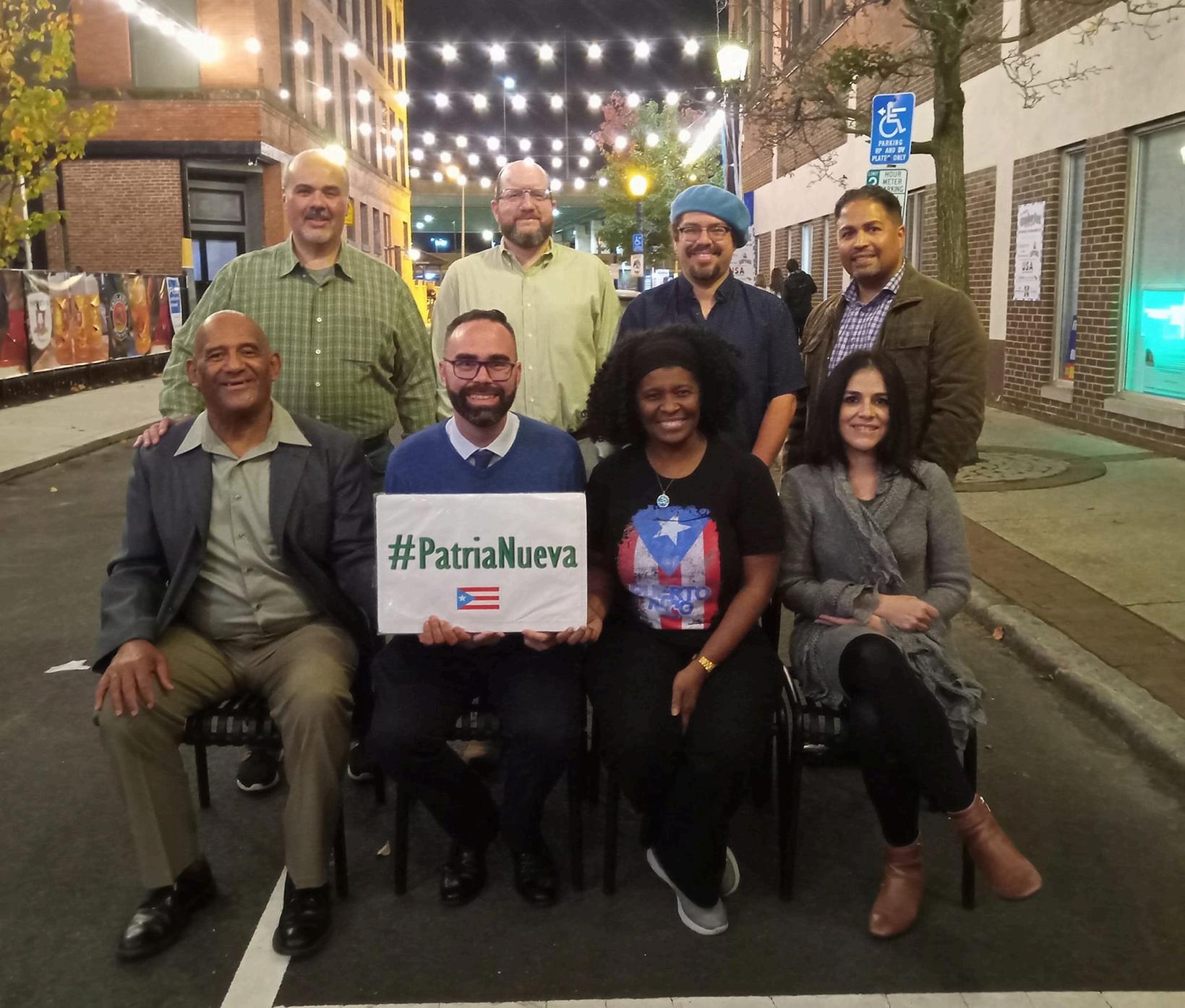

Puerto Rican identity remains central to Dr. Abraham s academic and personal journey. From celebrations like El Grito to struggles against colonial exploitation, those early experiences not only influenced his scholarship but also his teaching, grounding both in the themes of decolonization and Puerto Rico’s ongoing political struggles. For him, Hispanic Heritage Month is both an opportunity and a responsibility: “It’s an opportunity to make those contributions visible and to push back against narratives that deny our visibility in society.”
Dr. Abraham’s fieldwork has also left a lasting mark on his approach to research and teaching. He describes a pilgrimage in Colombia with former combatants, indigenous communities, and social movement leaders as transformative.
“Living, cooking, marching, and sharing stories with these people taught me the limits of detached observation,” he reflects. That experience convinced him of the importance of participant observation, immersing himself in people’s daily lives, as essential for understanding fragile peacebuilding and the human costs of conflict.


At Gonzaga, Dr. Abraham connects these lessons directly to his teaching through experiential programs such as the Colombia summer study. In this program, undergraduate students meet with community leaders, study the mechanics of peace agreements, and practice dialogue-building across political divides.
When asked what advice he has for students passionate about advocacy, social justice, or work in Latin America, Dr. Abraham stresses the importance of relationships:
“Build relationships first: spend time with the communities you want to support, share meals, learn their histories, and listen,” he advises.
Grounded, person-to-person connections, he notes, make someone a more effective advocate than distant analysis alone. Through his teaching, scholarship, and community engagement, Dr. Abraham embodies the themes of Hispanic Heritage Month year-round. His reflections highlight the power of heritage to inspire action, the value of lived experience in shaping scholarship, and the importance of making space for voices that have too often been silenced. In centering these perspectives, Dr. Abraham enriches Gonzaga’s academic community and provides i i i i d a more inclusive world.
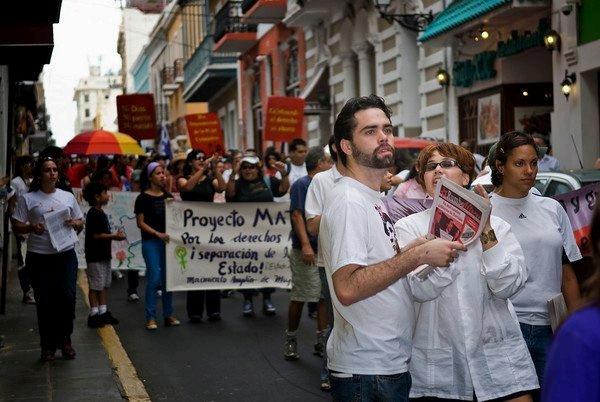

September 26th marked a milestone for Gonzaga University with the inauguration of Dr. Katia Passerini, the first woman to serve as President. The week-long celebration brought together students, faculty, and alumni in laughter and reflection, welcoming a new era of leadership and community.
Inspired by this spirit, students shared what inclusivity and belonging mean to them—and what gives them hope for Gonzaga’s future. Their reflections remind us that the heartbeat of Gonzaga lies in its students: their curiosity, courage, and care for one another.

Inclusivity, to senior biology major Kate Furman of Bellingham, WA, begins with access and opportunity, and she credits Gonzaga for helping students connect early on, for creating spaces where participation feels natural. Lan Anh, a senior double major in economics and computer science from Vietnam, sees inclusivity as love and empathy. “It’s about having a community,” Lan Anh said. “We’re far away from home,” and it can be lonely. However, Gonzaga’s cultural clubs, friendly faculty, and supportive professors make the campus feel close-knit.


Alyssa Kotsakis, a senior nursing student from Hawaii, defines inclusivity as “having a space for everyone to do what they want to do.” It is important to have welcoming spaces where people can pursue what they love, regardless of background or interests. From clubs and residence halls to community events, there will always be something for everyone.
New students also find their footing through community. “Jub,” from Mountlake Terrace, WA, shared how groups like ALAS and KSA helped him meet new friends and settle in. Thanh, a finance and data science major, and Jerry, a marketing major, both from Vietnam, agreed. “The people here are so welcoming,” Thanh smiled, and it extends beyond academic, Jerry chimed in.
Grace Crantz, a senior biology student from rural Montana believed inclusivity means creating space for others, of “being part of the greater whole and [...] being a valued member”. As president of the Native American Student Association, founded last year, she hopes to build that same sense of belonging for Native students across campus.
With new leadership at the helm, students shared excitement about Gonzaga’s future and the direction it’s heading.
Anna Welsh, a senior in human physiology from Redmond, Washington, hopes to see culture clubs and diversity efforts gain more recognition. She noted that numerous overlooked events on campus deserve the spotlight for their impact. But she is hopeful, “after meeting Dr. Passerini [...] I think the school’s in great hands.”

Grace shared that excitement and looks forward to learning more about Dr. Passerini’s vision, especially regarding culture clubs. Being a newer organization, Grace’d love to connect and share what her club is doing. Meanwhile, Lan Anh is hopeful for more community-building events and “free stuff for students to just hang (out) and find their relationship.”
Across both domestic and international students, one theme stands out: a shared belief that Gonzaga’s inclusive mission will continue to grow so every voice feels seen, valued, and celebrated.
As they reflected on their journeys, students offered advice for those just starting theirs.
“Say yes to everything,” urged Kate. “Do as much as you can, it’s going to go by so fast.”
Alyssa added, “Live in the moment and take (it) one step at a time.”
Anna offered two practical tips: “Read your textbooks, even when professors say they’re optional! And go to as many events as you can” because Gonzaga works hard to help students connect.
Grace encouraged, “Don’t be afraid and do what feels right.”
And Lan Anh summed it up best: “Don’t be afraid. Opportunities are there. Just ask for it.”
Through their stories, one message shines bright: inclusivity at Gonzaga is not just about being welcomed, but about belonging, about finding a place where your story matters and helping others find theirs, too.


Based on the true story of José M Hernández, A Million Miles Away (2023) tells the story of a Mexican American farmworker who became a NASA astronaut. Starring Michael Peña, this heartfelt film captures perseverance, family support, and the power of dreaming big. It’s a moving tribute to immigrant resilience and representation, reminding us that no dream is ever too far. Available on Amazon Prime Video.
What We Leave Behind (2022), directed by Iliana Sosa, is a moving documentary that follows Julián Moreno as he begins building a house in rural Mexico at the age of 89 Through themes of migration, family, and belonging, the film offers an intimate look at life across borders and the human dimensions of immigration.
Available to stream on Netflix.
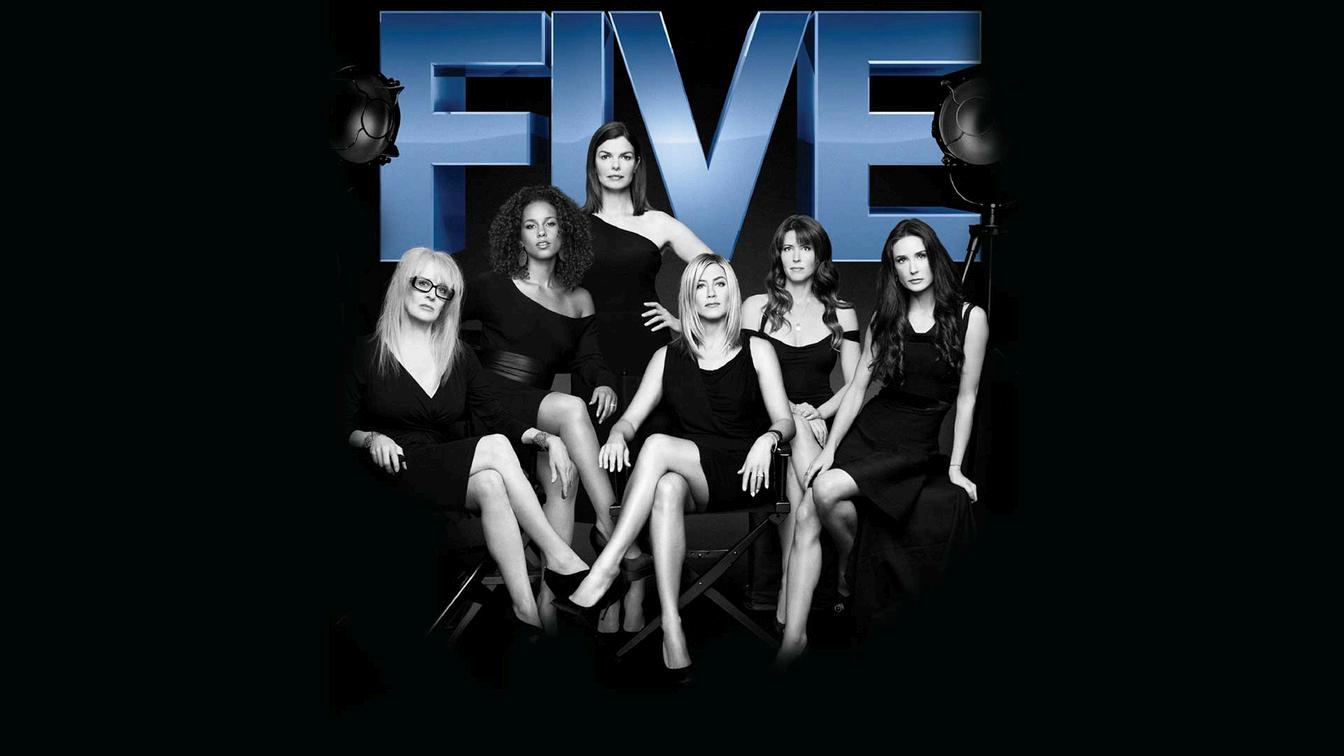
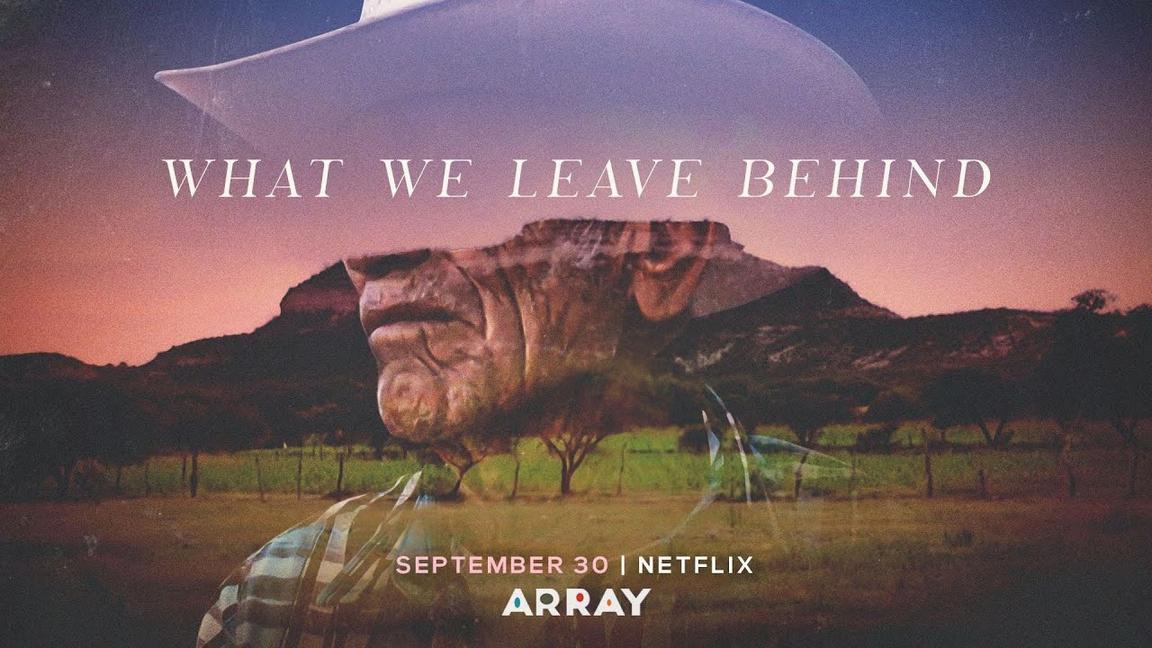
Five is an anthology film exploring the emotional journey of women affected by breast cancer through five short stories, each directed by Jennifer Aniston, Demi Moore, Alicia Keys, Penelope Spheeris, and Patricia Clarkson From humor to heartbreak, the film captures resilience, loss, and sisterhood with authenticity and warmth It’s a heartfelt watch that raises awareness while celebrating women’s strength Available on Apple TV, Amazon Prime Video, and Lifetime Movie Club

About: Staff, faculty, and anyone interested in intercultural connection are welcome to join us for lunch, meet new and familiar faces with shared interests, and take part in guided conversations that foster dialogue, learning, and belonging.
Where: Humanities Building 153 College Common (HUB)
When: Wednesday, October 1 | 12:15 PM to 1:15 PM
Bae-Goals
About: Join the Title IX Office and RHA for bagels and open conversation as we recognize healthy and toxic relationships and promote well-being in honor of Domestic Violence Awareness Month this October
Where: UMEC (Hemmingson 215)
When: Tuesday, October 21 | 5 PM - 6 PM
The Office of Inclusive Excellence Reading Group
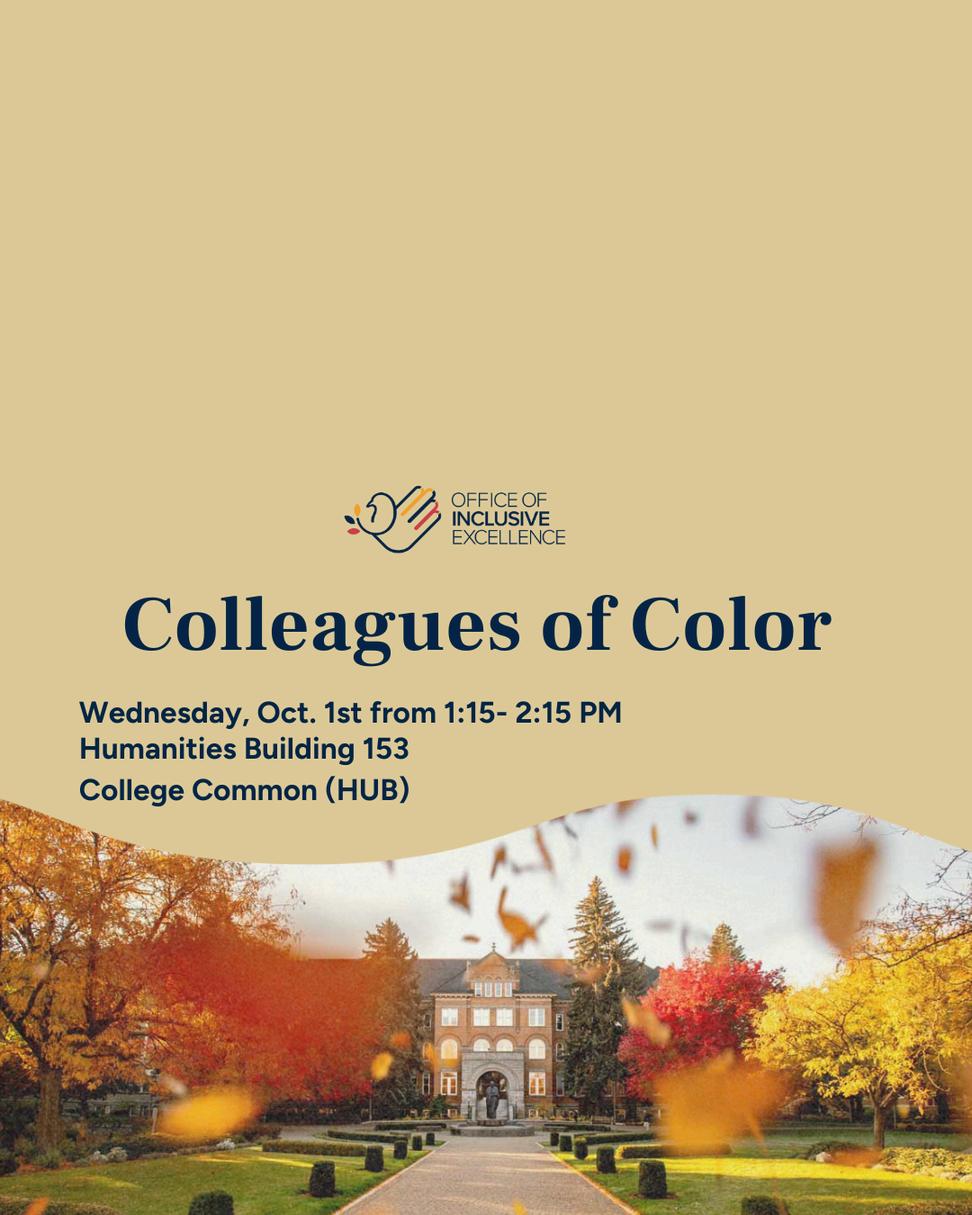
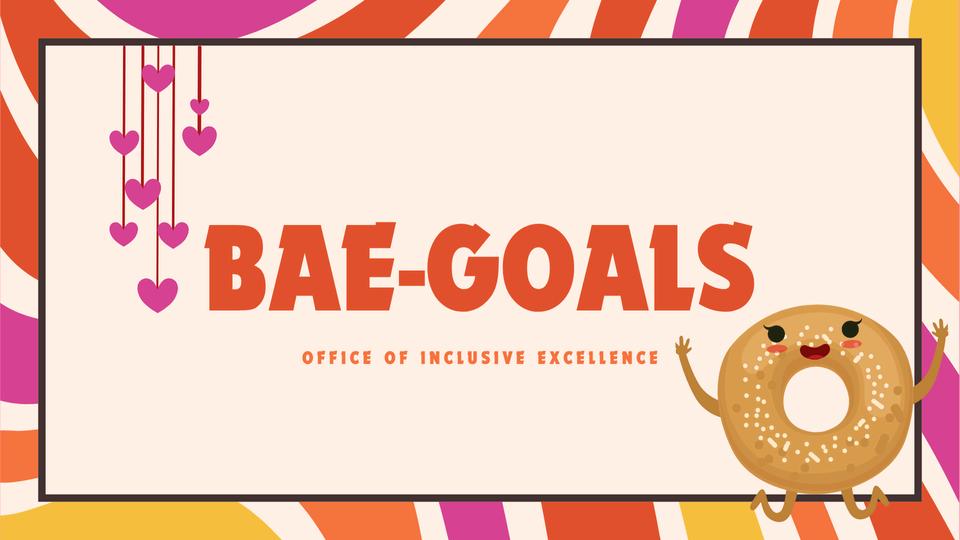
About: The Reading Group provides a space for collaborative learning and thoughtful discussion of selected readings. This month’s article, “The Critical Role of Culturally Relevant History in Serving Diverse College Students, ” explores inclusive approaches to education
Where: Hemmingson Center – 201 Joanne Jundt Lounge
When: Wednesday, October 29 | From 2:00 PM - 3:00 PM
About: In light of the Domestic Violence Awareness Month, drop in to write a support message or meet with the Sexual and Relationship Violence Prevention Team for any questions about healthy relationships.
Where: Hemmingson 220
When: Wednesday, October 29 | 12:15 PM - 1:15 PM


The Inclusive Excellence Leadership Academy (IEL Academy) is a learning and development program that helps advance Gonzaga’s Inclusive Excellence strategic goal Building on the DiversityEdu intercultural learning course, the academy provides a structured, multidisciplinary framework for participants to deepen their understanding of diversity, equity, and inclusion.
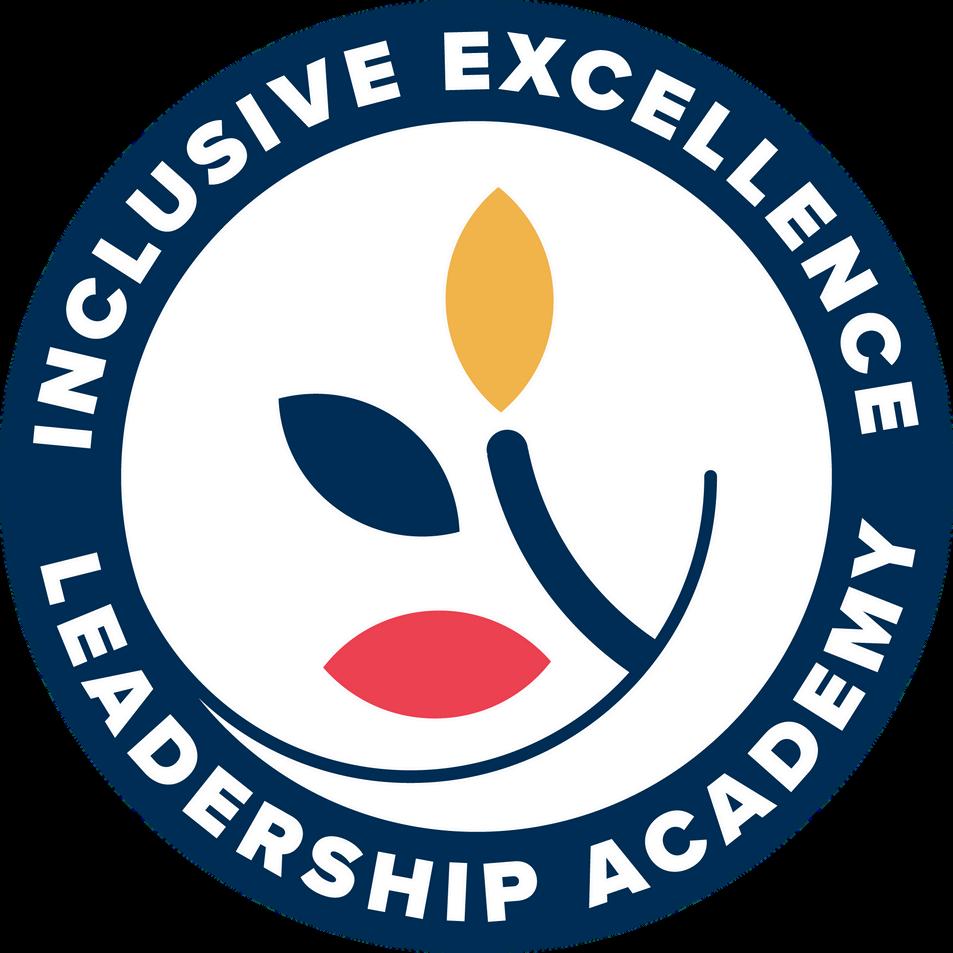
Throughaseriesofworkshopsanddiscussions,participantswillexploretopicssuchas oppression,anti-racism,equity,inclusion,privilege,implicitbias,microaggressions,race, power,inequities,genderidentities,generationalintelligence,andothercurrentissuesshaping ourcommunity.
Programparticipantsarerequiredtoattendaone-hourorientation,completetenworkshops, andcollaborateonacohortproject.Uponcompletion,graduateswillearnanInclusive ExcellenceCertificateandcompletetheInterculturalDevelopmentInventory(IDI) assessment.



About: Artist Dennis McNett will be on campus, hosting a mask-making workshop, as well as numerous lectures/talks across Spokane. Anyone interested in the craft and wanting to try it out should sign up!
Where: Gonzaga University Printmaking Studio-Jundt 101
When: Sept 29 to Oct 3, Various time
Spokane Candidates Climate Change Forum
About: Learn where local candidates stand on climate issues at Gonzaga’s annual Climate Change Forum, hosted by the Institute for Climate, Water, and the Environment This nonpartisan event, held each first Wednesday of October, invites candidates for local office to share their views and plans on addressing climate challenges in our community. Where: Globe Room located in Cataldo Hall, Gonzaga University and livestreaming online
When: Wednesday, Oct 01, 2025 6:00 PM
About: Join in Gonzaga’s 22nd Annual Undergraduate Research & Creative Activity Showcase (URCAS). This event highlights the outstanding research, scholarship, and creative work of Gonzaga students across all disciplines.
Where: Hemmingson Ballroom
When: Friday, Oct 03, 2025 3:00 PM - 6:00 PM
Fall Family Weekend Choir Concert
About: Join us for our opening concert of the year, featuring all the choral ensembles at Gonzaga: Concert Choir, Glee Club, and Musea, along with a special joint performance with a local high school!
Where: Myrtle Woldson Performing Arts Center
When: Saturday, Oct 04 | 7:30 PM - 9:00 PM
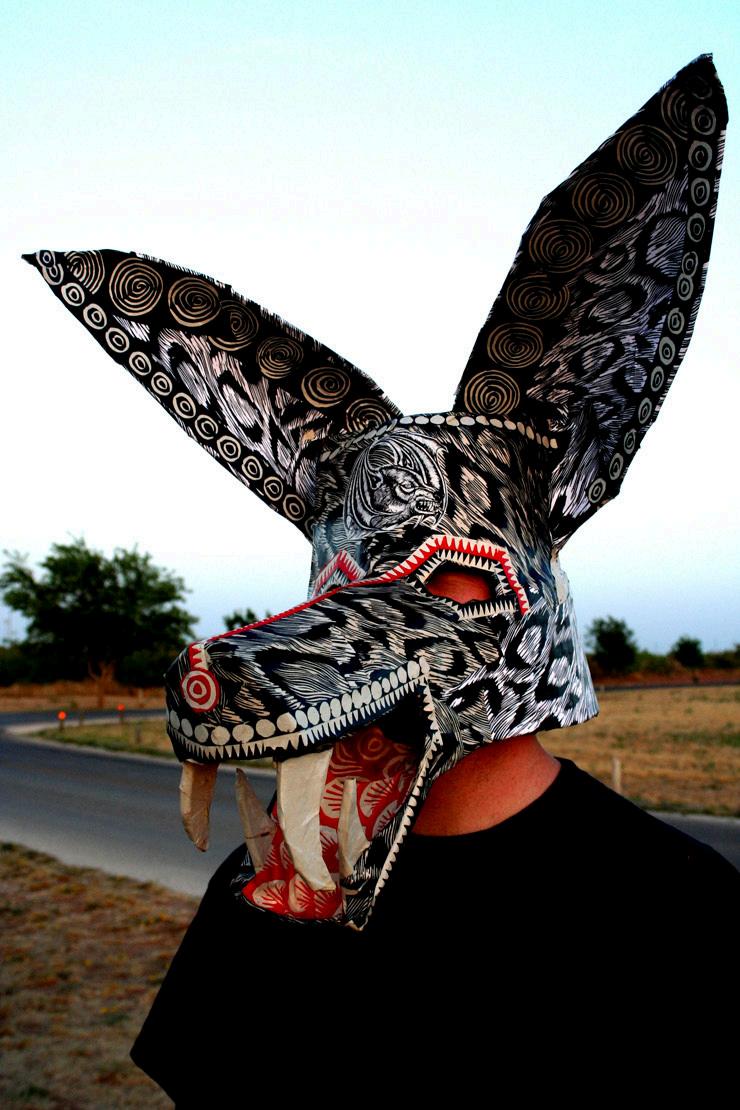
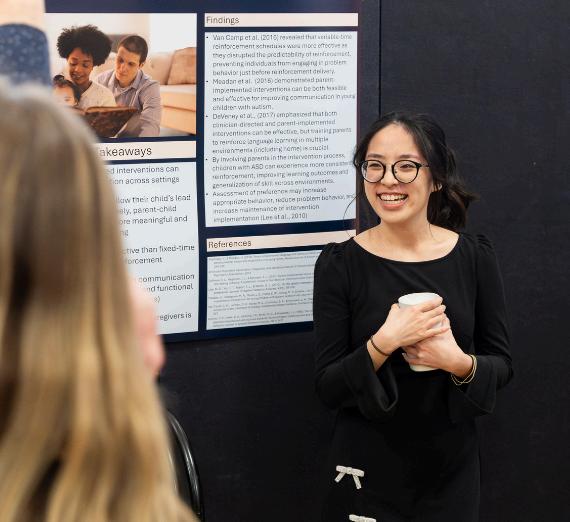
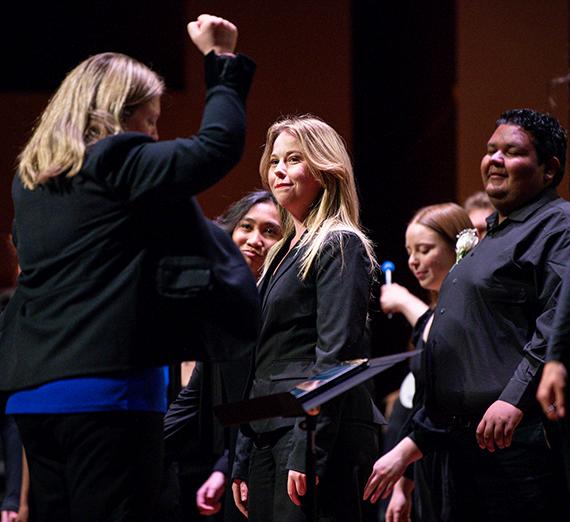

About: The School of Business Administration invites you to the inaugural Chapman Lecture on Truly Human Leadership, honoring Bob Chapman, CEO of Barry-Wehmiller and founder of the movement. Featured speaker Kyle Chapman, President of Barry-Wehmiller, will share insights on people-centered leadership and the power of caring for those who make business possible.
Where: Cataldo Globe Room
When: Monday, Oct 13 | 6:00 PM - 7:30 AM
Gonzaga Symphony Orchestra Concert, Featuring Violin Soloist, Maria Ioudenitch
About: The program features Tchaikovsky - Symphony No. 5 in E Minor, Prokofiev - Violin Concerto No.1 in D Major and Sarasate - Carmen Fantasy for Violin and Orchestra.
Where: Myrtle Woldson Performing Arts Center
When: Monday, Oct 13 | 7:30 PM - 9:00 PM

About: Join Christy Larsen, Lauren Frasca, Kris Snow, and Brooke Sullivan as they share their experiences and how to network effectively. Hosted by the School of Business Administration and the Mozilo Chair of Business.
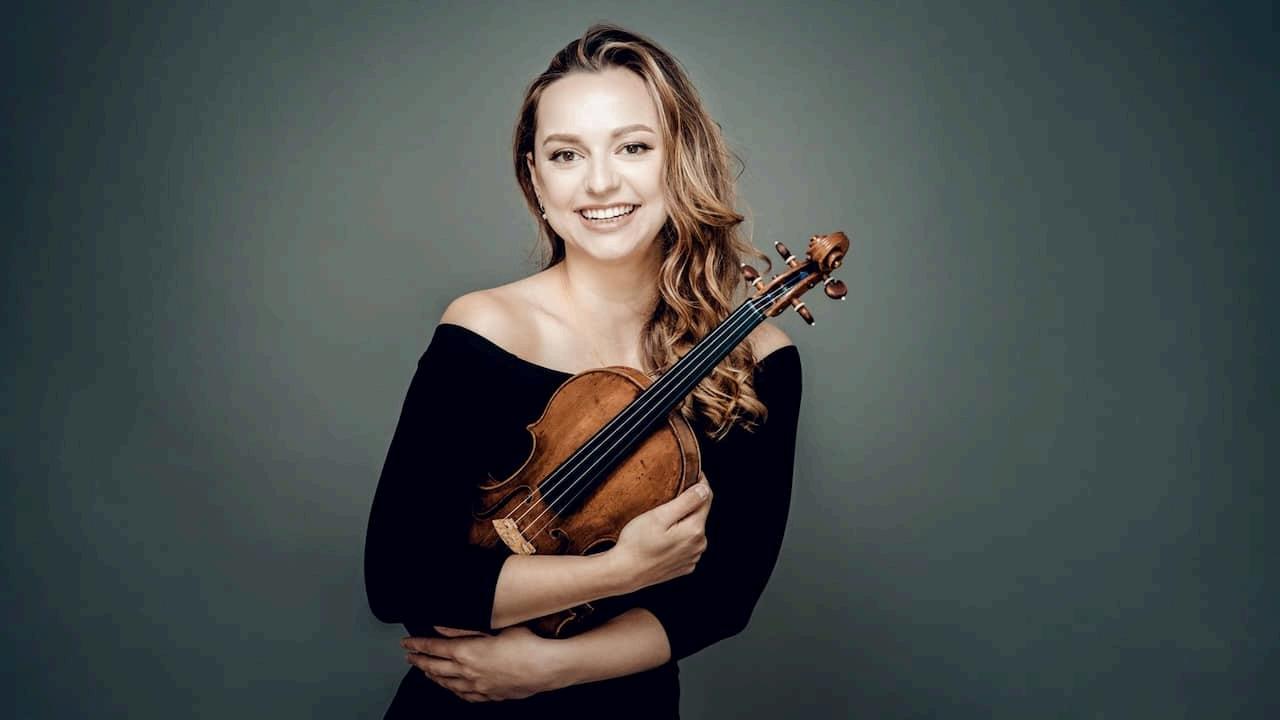
Where: Jepson Center, Wolff Auditorium, Gonzaga University
When: Thursday, October 16 | 5:30 PM - 7:30 PM
Executive Leadership Academy
About: Gonzaga’s Executive Leadership Academy returns October 24! This one-day program invites leaders to step back, reflect, and build the clarity, courage, and resilience needed to lead through change.
Where: Gonzaga University
When: Friday, Oct 24 | 8:00 AM - 5:30 PM
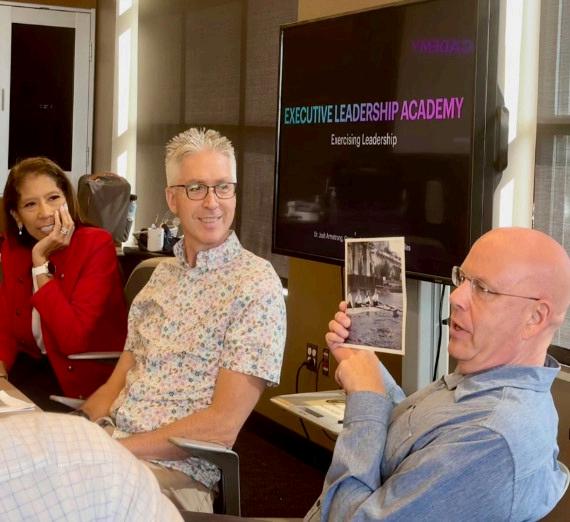

About: Join us for an evening of music, mystery, and celebration! Enjoy hearty appetizers, drink tickets, and more. Wear your own masquerade mask or pick a complimentary one at the bar. Cohosted by the Gonzaga Lavender Alumni Community and the Lincoln LGBTQ+ Resource Center. All are welcome!
Where: Bozarth Mansion and Retreat Center 12415 N Fairwood Dr, Spokane, WA 99218
When: Saturday, Oct 25 | 6:30 PM - 9:00 PM
About: Join Gonzaga Law for a full-day summit on the evolving landscape of due process in immigration law. Featuring national and local experts, two panel discussions, and a keynote by UCLA’s Hiroshi Motomura. Washington State CLE credit pending.
Where: Gonzaga University School of Law
When: Friday, Oct 31 | 9:00 AM - 3:00 PM
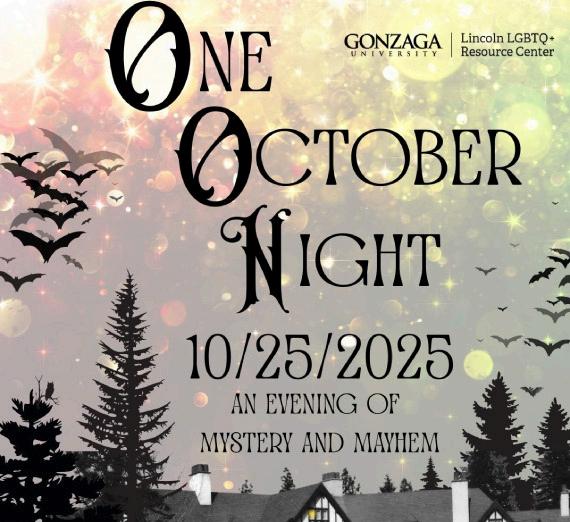

Don’t see an event that interests you? Click or scan the QR code to visit Gonzaga News, Events, and Stories for more campus highlights!


About: This interactive installation pairs poetry from survivors on their healing journeys with artwork by local artists. Along a scenic path in Riverfront Park, 15 stations feature prompts to inspire conversations about healthy relationships. Visit anytime this October to walk, reflect, and connect.

Where: Snxw Mene, 617 N Howard St, Spokane, Washington 99201
When: October 1 - October 31, 2025
About: The region’s largest multimedia art and music event is just around the corner! From painting and poetry to performance art, dance, film, and a full musical lineup. Terrain 16 is not to be missed!
Where: 314 W Riverside Ave
When: October 2, 6 PM to 9 AM ($25 per person)
October 3, 5 PM to 12 AM (Free)
4th Annual EWU Wheelchair Basketball Tournament
About: Join us for a weekend of exciting wheelchair basketball! Admission and parking (Lot P-12) are free. Games start at 10 a.m. both days, with the showcase game Saturday at 6 p.m. featuring the Eastern Eagles vs. the University of Arizona.
More info: goeags.co/wcbbtourney | Contact: Coach David Evjen (devjen@ewu.edu)
Where: Reese Court, 1136 Washington St, Cheney, WA 99004
When: Saturday, October 25 & Sunday, October 26, 2025

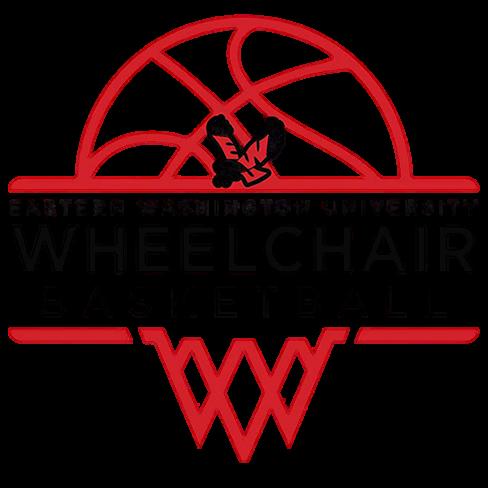

About: Step into Ghostlight, an immersive Halloween experience by Kindling Productions at the historic Montvale Event Center on Friday, Oct. 24, 6–10 p.m. Explore haunted halls filled with live music, dance, and eerie performances by over 25 regional artists, including Coil Aerial, Quiero Flamenco, and Stage Left Theatre. A PG-13 event with beverages available for purchase
Where: Montvale Event Center; 1019 W 1st Ave, Spokane, WA 99201
When: Friday, Oct 24 | 6:00 PM - 10:00 PM
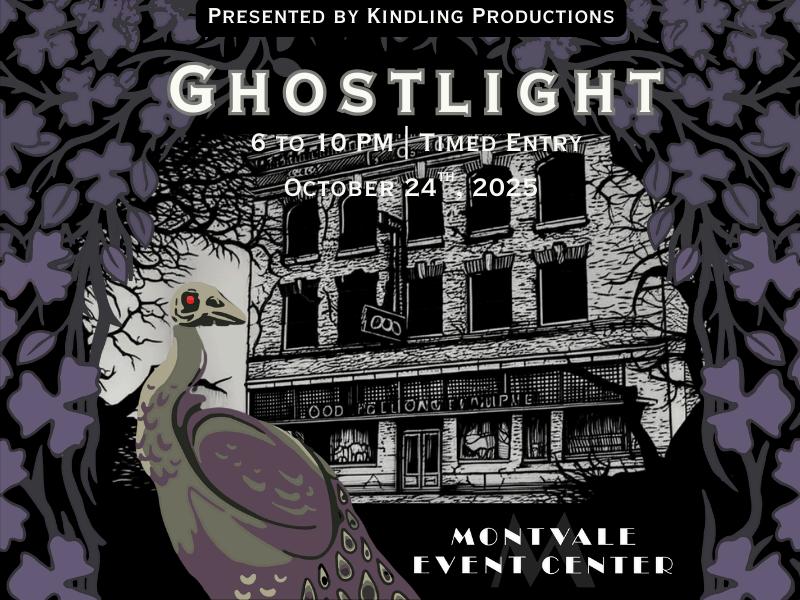
About: Join us for a glamorous movie night this Halloween! Come dressed in your vintage best, walk the red carpet, and enjoy a 4K screening of the classic film High Society starring Bing Crosby, Grace Kelly, Frank Sinatra, and Louis Armstrong Prizes will be awarded for Best Vintage Outfit, plus drawings for Zags Basketball tickets and Bing Crosby souvenirs.
Where: Marti Woldson Theater at the Fox; 1001 W Sprague Ave, Spokane, WA 99201
When: Friday, Oct 31 | 7:00 - 8:30 PM
Want to explore more events? Click or scan the QR code to go to VisitSpokane for more suggestions on what to do in Spokane!
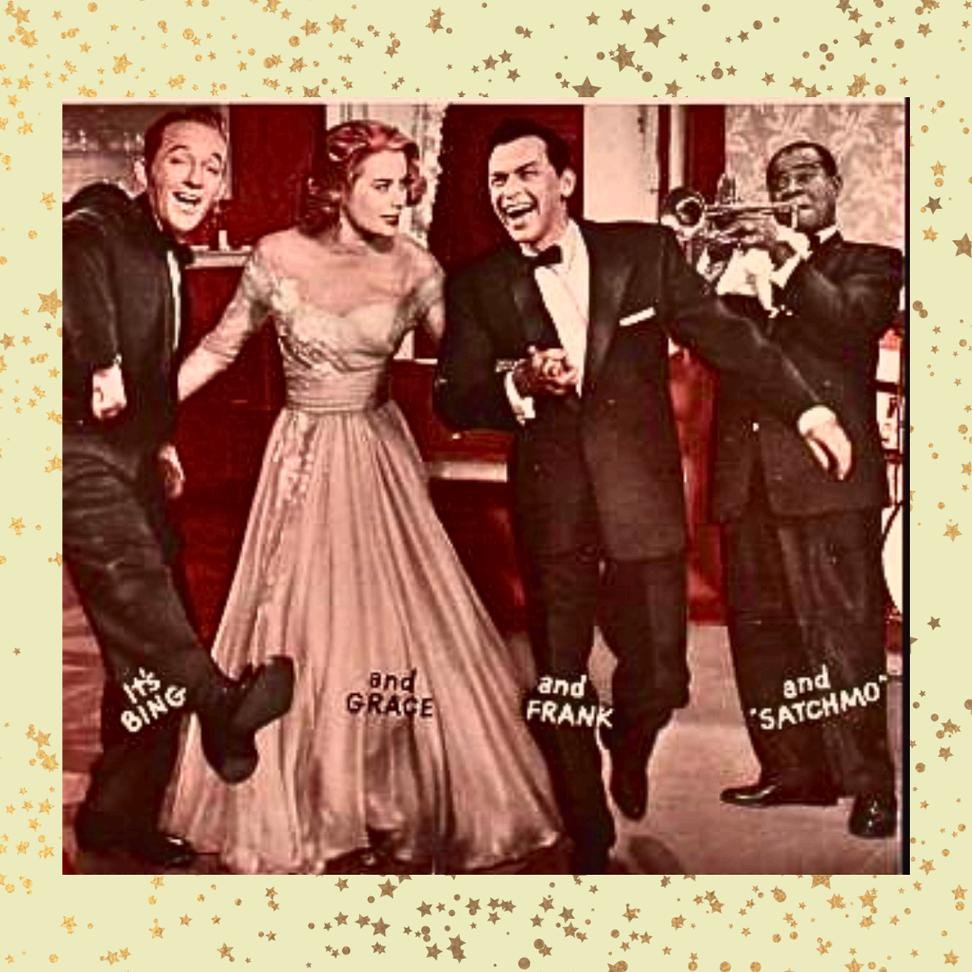

Check out more event here!


Enjoyed this issue of Diversity Digest?
Subscribe for future editions and tell us what you think!

Follow us on Instagram: @gonzagadiversity
Questions? Comments? Have an idea for an article? Email us at inclusiveexcellence@gonzaga.edu
EDITORIAL BOARD
Alexis Ewing
Ashlinn Aguayo
Brice Yates, Ph.D., CPD
Coco Haggen
David Gomez, M A
Kristina Poffenroth
Maricia Hernandez
May Ly
Meghan C. Ridgely, M.L.S.
Robin Kelley, Ph D
Trieu Khanh Vy Nguyen